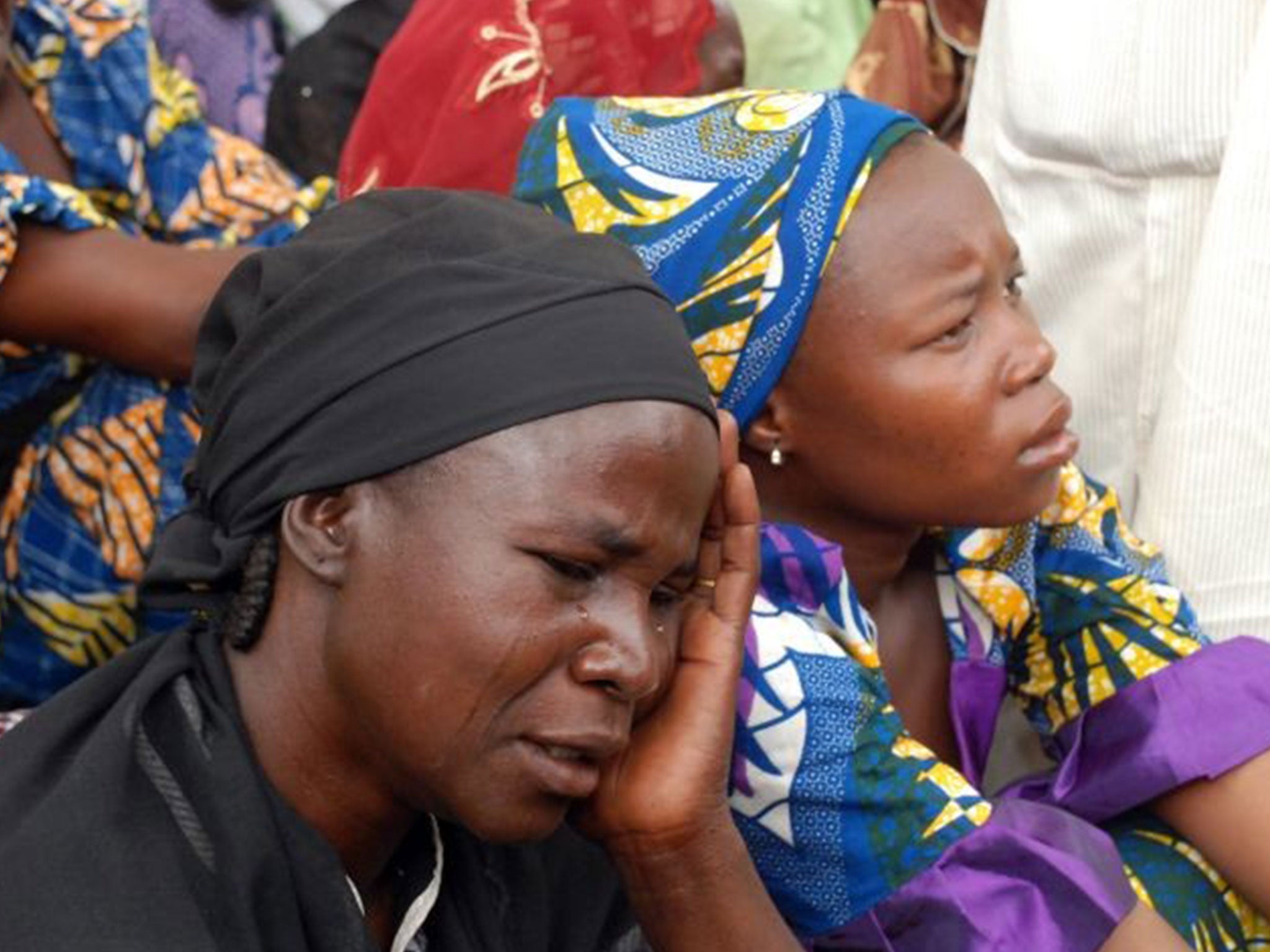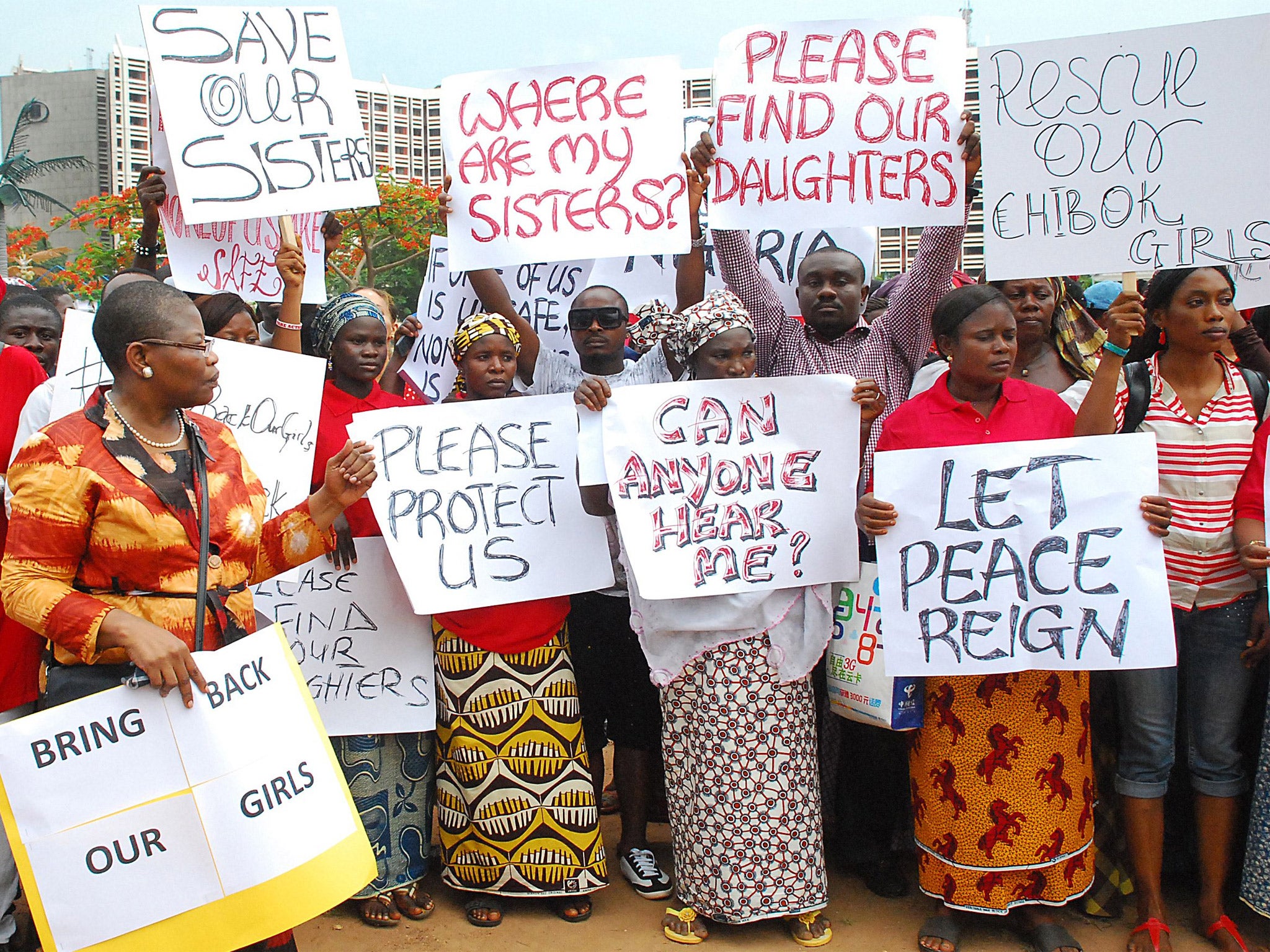Nigerian schoolgirl kidnappings: US task force 'on the ground' as hunt for missing girls intensifies
US Secretary of State John Kerry says military force will combat the 'menace of Boko Haram'

Your support helps us to tell the story
From reproductive rights to climate change to Big Tech, The Independent is on the ground when the story is developing. Whether it's investigating the financials of Elon Musk's pro-Trump PAC or producing our latest documentary, 'The A Word', which shines a light on the American women fighting for reproductive rights, we know how important it is to parse out the facts from the messaging.
At such a critical moment in US history, we need reporters on the ground. Your donation allows us to keep sending journalists to speak to both sides of the story.
The Independent is trusted by Americans across the entire political spectrum. And unlike many other quality news outlets, we choose not to lock Americans out of our reporting and analysis with paywalls. We believe quality journalism should be available to everyone, paid for by those who can afford it.
Your support makes all the difference.A US task force set up to help find the 276 schoolgirls abducted by the Islamist militant group Boko Haram has arrived in Nigeria to assist with the hunt.
Military, law-enforcement and development experts, including some skilled in hostage negotiations, also plan to tackle the rising threat from Boko Haram. France, Britain and China have also offered help.
The US Secretary of State John Kerry said: “Our inter-agency team is hitting the ground in Nigeria now and they are going to be working in concert with President Goodluck Jonathan's government to do everything we can to return these girls to their families and their communities.
”We are also going to do everything possible to counter the menace of Boko Haram.“
The latest developments follow a request by Nigerian President Jonathan to Barack Obama for help, with the US President vowing to "do to everything we can" to help find the girls, whose abduction from a secondary school on 14 April triggered international outrage.
A social media campaign, using the hashtag #BringBackOurGirls, has been credited with highlighting the Nigerian government's response to the kidnappings and on Boko Haram's other attacks and kidnappings, which have terrorised local communities.
US First Lady Michelle Obama and human rights campaigner Malala Yousafzai are among high-profile figures to join worldwide calls for the return of the schoolgirls on Twitter.
UN envoy Angelina Jolie today said the culture of impunity was to blame for the kidnappings.
“I'm actually sickened by it,” she said. “And the thought of them out there now, terrified and being abused and sold.
“It's infuriating and it kind of goes beyond understanding that someone could do this.
”I think it speaks of a bigger problem which is that because of the lack of impunity and because people believe they can get away with this people will commit these kind of crimes.
Earlier, President Jonathan said he hoped a ‘turning point” had been reached with the ongoing threat of terrorism in the country and the battle against Boko Haram.
Speaking at the World Economic Forum being hosted in the capital, Abuja, he said: “I believe that the kidnap of these girls will be the beginning of the end of terror in Nigeria.”
In a video earlier this week, the leader of Boko Haram, Abubakar Shekau, admitted to carrying out the kidnappings and threatened to ”sell” the students at a market.

While Nigeria has sought help from the United States, the government had often been reluctant to take the advice, according to US officials. Cooperation has also been complicated by international concerns about human rights abuses by Nigerian security forces in the north-east of the country.
Human rights groups have highlighted illegal detentions, torture and deaths of prisoners at Giwa Barracks where the Nigerian military has imprisoned young men accused of being Boko Haram members in the past several years. Many prisoners held were bystanders rounded up in mass sweeps, rights groups say.
Join our commenting forum
Join thought-provoking conversations, follow other Independent readers and see their replies
Comments